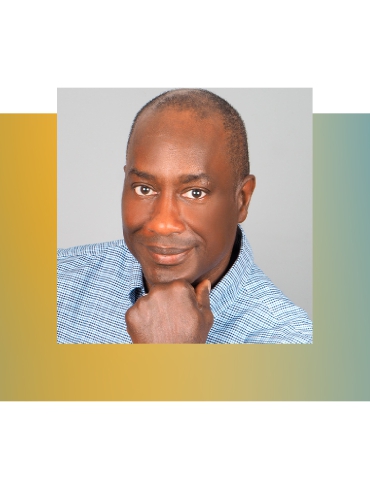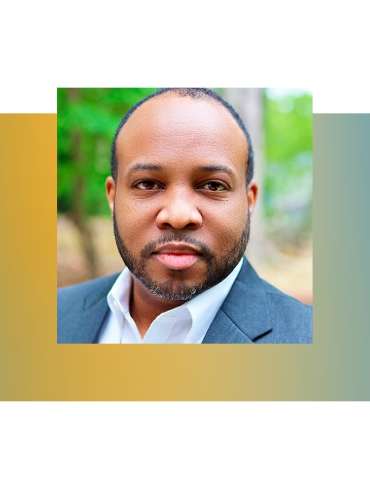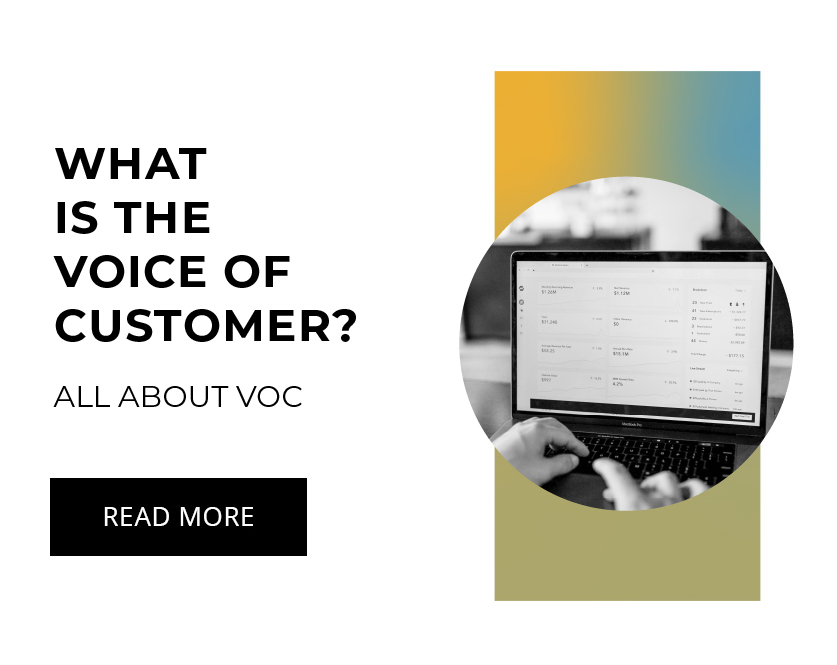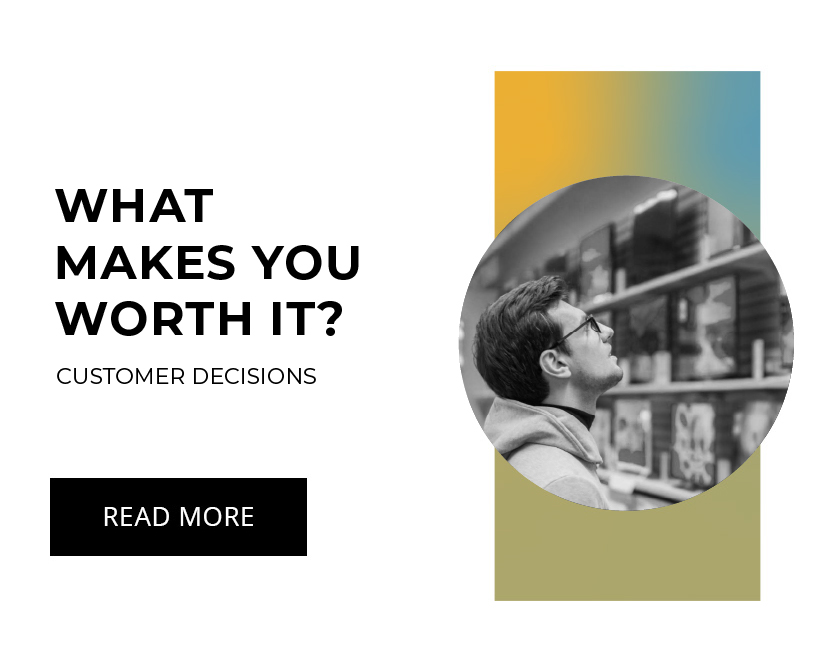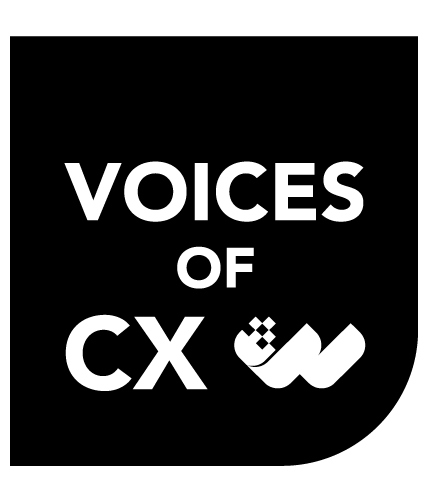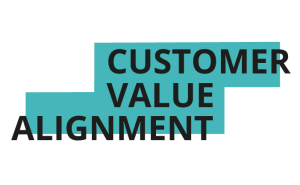About Tom Goodwin
Tom Goodwin is the EVP, Head of Innovation at Zenith Media, his role is to understand new technology, behaviors and platforms and ideate and implement solutions for clients. An industry provocateur and commentator, he’s a regular contributor to the Guardian, Inc, GQ, TechCrunch, Forbes, Ad Age, Ad Week, and Digiday and his work has featured in the New York Times, Economist and the Times. Voted the #1 voice in Marketing by LinkedIn and one of 30 people to follow on Twitter by Business Insider Tom joined Zenith after founding Tomorrow, an agency to provide innovative advertising and marketing solutions for the post-digital age. He has a MEng in Structural Engineering and BArch in Architecture from the University of Sheffield, UK.
Buy Tom Goodwin’s book: Digital Darwinism
Follow Tom Goodwin on LinkedIn
Follow Tom Goodwin on Twitter: @tomfgoodwin
Transcript:
[00:06] Mary Drumond: You’re listening to Voices of Customer Experience. I’m your host Mary Drumond, and on this podcast we shine the spotlight on individuals who are making a difference in customer experience. We also proudly bring you the very best of customer experience, behavior, economics, data analytics and design. Make sure to subscribe or follow us on social for updates. Voices of Customer Experience is brought to you by Worthix. Discover your worth at worthix.com. [00:35] MD: Tom Goodwin is the EVP and Head of Innovation at Zenith Media. His role is to understand new technology, behaviors and platforms and ideate and implement solutions for clients. An industry provocateur and commentator, he’s regularly contributed on the Guardian Inc, Gq tech crunch, Forbes ad age, Adweek, and DigiDay, and his work has been featured in the New York Times, The Economist, and the Times. Voted number one voice in marketing by LinkedIn and one of the 30 people to follow on Twitter by Business Insider, here’s Tom Goodwin.
[01:08] Tom Goodwin: Hello. Thanks for having me on the show.
[01:10] MD: And joining us once again is my cohost James Conrad. Thanks for coming on, James.
[01:15] James Conrad: Hey Mary, great to be here. [01:16] MD: Thanks for being here today. So as a starter to begin, you are a digital influencer, which is a term I know you don’t feel that comfortable with, but nonetheless, it’s yours. You’re an influencer, you’re an author, you’re a blogger, you’re a keynote speaker, you do a lot of communicating and when you do so, who’s the audience that you have in mind generally like who’s your target audience, who are you trying to reach with your message?
[01:50] TG: Um, anyone that’ll listen. To be honest, I don’t really think of it as an audience and more. I mean this sounds massively pretentious, but I think of it more as like a communicator. My distaste for the word influencer comes from many different angles. One is this idea that there are some people who are influential and others who are not. Two, I don’t think I am particularly influential. Like I think I’m not a teacher that knows all this stuff and then these five and six year olds sit in the class and you know, there’s the objective truth that I have and people sit there and listen and learn. You know, this is a changing world and I don’t know any more than other people, you know,I feel a bit more like a kind of an orchestrator of parades where I might have a microphone, there might be more people that happen to listen to me. I’m basically saying, hey, has anyone got any good views on this?
[02:37] TG: Hey, what’d you think about that? I’m trying to create a conversation about these interesting changes that are happening to the world and I like to think of myself more as a sort of instigator or agitator or something like that more than anything else. The people I hope will join in this conversation and the people I hope will join in because they hear my stuff I think are from a variety of industries. My career is in advertising. But it’s more about like anyone in business who has an interesting point of view or an interesting perspective. So maybe they are the Chief Information Officer, the CEO, maybe CMO. There’s someone that works in the storefront. I mean customers on a daily basis that anyone that has this insight is an overused word, but anyone that’s got something particularly interesting to offer.
[03:32] MD: And how did this all start? How did you start getting so many followers? Was it just you ranting on twitter and LinkedIn and eventually people started following?
[03:43] TG: Yeah, I was just in a cupboard wearing white underwear, sweating, being angry on the Internet. It definitely wasn’t a plan. I mean I think now that these influencers are people that appeared to have careers is a sense that there were people setting out to do this and I can make money from doing it and I’m definitely not smart or strategic plan. Um, quite honestly I’ve said this before, but I was working in advertising for quite a long time. I got really, really excited about how technology can make amazing things possible. I got really annoyed that advertising agencies were really smug and sort of saying, oh look at Blockbusters. They went out of business from not changing. Look at Nokia. And then as an industry we were already changing until I became quite vocal and then that didn’t really help my career because I kind of got fired and then I just got a bit depressed and I sort of realized that I thought that maybe I had interesting things to say and maybe I should write things.
[04:44] TG: Um, I started using this website called Quora I guess about seven years ago, and I answered a lot of questions on there and my work seemed to do quite well. And then my girlfriend at the time was working in sort of PR and she was like, look, I think you’ve got something really interesting to say. I think we can get you published in a few places. So I was like great. I’m going to write to the old times and they’ll call them going and I’m going to work for Time Magazine or The Economist. And then she tells me that it wasn’t really that easy and I should probably start, you know, working for the tiny little niche publications.
[05:30] TG: Now that we’ve mentioned their names. There’s this little hierarchy I guess of advertising publications and there are some that maybe have 10,000 followers on twitter and some that will let anyone write for them. So I kind of started writing a few pieces for smaller places and again, this sounds quite smug, but the kind of quote on quote secret to my success I think was the because it was just me and I was quite frustrated and I didn’t have a corporate PR department to go through. I was able to write what I thought, so if I thought that British Airways were an absolutely dreadful airline, I could put that in a piece without anyone worrying that that means that we can’t pitch to their business for 10 years. So the only real advantage I had was I had this unique combination of actually being able to get published and actually being able to have an opinion. And I think, to be honest, it’s those two things are the only real thing I’ve got.
[06:26] JC: No, it’s interesting, and I came from the WPP world originally. I spent most of my time there until just recently. So I wondered too, as you’re out talking about these issues and you seem quite passionate about some of these things, if you read some of the things that you talk about, you challenge a lot of the traditional conventions and you know, the way people are using data and the way people are thinking about brands. What I wanted to talk a little bit about today, Tom, was about solutions and what companies could be doing, what they should be thinking about from the conversations that you’ve had, the brands that you’ve worked with. Where we can start to talk about, well, how do we fix it? Like what are the things that we really need to get our house in order and start to change and adapt to what’s been happening? And I’d love to talk a little bit about that today. [07:17] TG: I really welcome this type of conversation because I am massively aware that I’ve managed to have a nice few years going around and speaking on stages saying, hey, we can do amazing stuff. Hey, everything can be better. But I’m starting to feel quite vulnerable about the fact that, you know, as much as I’m joking about being an angry guy on the internet, like it is quite easy to sort of perceive me as being someone that may be asked good questions, you know, maybe offers interesting things, but then proceeds to do absolutely nothing about it. It is increasingly important for me to be someone that actually makes a difference rather than just ask questions. But I would say it’s really hard. The reason why I default to writing articles rather than default announcing projects that I’ve made happen is that I’m staggered at how difficult to made companies change.
[08:05] JC: Yeah, we agree. We agree. Mary and I have been doing the podcast for quite some time and it’s been fascinating actually, how many issues that still exist and have been going on for decades and we seem to be talking about the same bloody things. And there just seemed to be a lot of action sometimes, you know?
[08:22] TG: Yeah. There’s this weird thing where there are moments where it feels like technology is making sweeping changes and everything is faster than ever before. There are some companies that seemed quite surprised that buying things from the Internet is a big thing. There are some companies that have absolutely dreadful mobile app experiences that we’ve understood more than and we’re sort of obsessed with somehow, you know, what can we do about artificial intelligence? So what can we do about blockchain or what can we do about virtual reality? Like I’m about to send people an email or you know, I’d quite like them to have sort of opening hours that are reflective of the fact that people tend to sort of work different hours these days. So we often overthink these things and we haven’t really got grips with the basic yet. [09:16] JC: Yeah. Well, I think one of the things you said just in the last day or two, which really struck me was the more senior you get in an organization, the further you’re getting away from your customers. And we’ve heard that several times. I wonder your thoughts on that. Do you think this is one of the reasons why some companies just aren’t able to pivot to where their customers are going because the people at the top that control the budgets and make the decisions for the organization aren’t as tuned in to what their customers need, want, expect?
[09:49] TG: I think we need to explore this a lot further. My main hypothesis, and it came out in a book I wrote, was when technology arrives, what tends to happen. I mean it happened with electricity, it happened with steam power. Like it probably happened with the wheel for all I know. We tend to take the things that we’ve always done and we sort of layer in this new technology around the edge of it. We tend to kind of form contemporary versions of something that’s old that actually if we were to draw a line underneath it, we wouldn’t have invented that thing in the first place. And I said there are good sort of examples of this where you get sort of electronic pdf versions of magazines or something and you’re like no. The whole point about digital technology and digital screens is it doesn’t have to be a pdf and it can hyperlink. And we have things like electronic tickets when you go to events and you can now scan a ticket on the way in, like these are kind of both literal examples, or metaphors of how we tend to kind of contemporize the old rather than rebuilding.
[10:50] TG: And I think that’s the sort of key parts of it where if a company is to actually really, really establish themselves around the attention of these new technologies, they need to make really significant changes. They need to rewire the very foundation of their companies and most people at a certain level of seniority, they’ve got like a mortgage on a house and they’re worried about what school their kids are going to go to next and how much that’s going to cost in the school fees. But they’re not really prepared to undertake the risk and to do something that’s going to take a long time to pay off. So instead they tend to do a lot of distractions and they’ll kind of like create a kind of VR app or they’ll do a trade show where you can kind of when something with a QR code or something. And these people tend to kind of. I don’t know whether they’re in denial or whether it’s a basic human reaction to all this. But I think the more they realize about how much they should be doing, the more uncomfortable they feel. I think they almost deliberately isolate themselves away from the real cliff face where it all happens and I’m not being so critical. I’m sure in 10 years time I’ll be doing the same. Like it’s a very human thing to want to have a comfortable life and to be able to sleep and stuff. But many, many companies are built with terrible, terrible software that massively wastes productivity and they have everything from coaches to work on processes to policies which are all not particularly effective for the modern world. And what we tend to see these companies that build themselves for today, that the ones that are really thriving.
[12:24] MD: It’s interesting is that like two step forward, one step back maybe where we advance in a certain department, but in the other, we’re still stuck to our old ways? We tend to address this a lot. Going back to what you said at the beginning. It’s like with a digital surveys, for instance, most of the digital surveys out there, instead of being entirely new are just a digital version of the pen and paper surveys from the 1920s. It’s exactly the same thing. Nothing has changed. Why do you think that we get stuck other than the safety and comfort is, do you think there’s a, another more powerful reason or is it just humans getting stuck in a rut and refusing because we’re comfortable?
[13:05] TG: I think that there’d be other things that manifest itself themselves as a result of that sort of primary, primal human condition of not wanting to change. But I mean, we’re very good at seeing patterns and we are very good at repeating those patterns. Like I think we find it extremely difficult to sort of break out of cycle. If you imagine these surveys, we’ve probably been measuring things that are easy to measure, measuring things that we’ve been tracking for a long time. We probably have got quite a lot of analysis that we’ve used to establish what these metrics mean and what that will mean for productivity or profitability or whatever center. So to say you will you be measuring this and that and you’d be measuring in this way. That’s actually a complete waste of time, and we need to completely rethink it. It’s highly sort of disruptive and while it might be a better way to do things, I don’t think many people are prepared to take that huge leap that we need to. Like if you look at lots and lots of things that exist in the modern world and of systems that we’ve never create today, but to be the person that sort of changes at all is so monumentally difficult that most people just carry on within the current paradigm in a way.
[14:26] MD: Worthix is disrupting the market research industry with cutting edge technology and a revolutionary methodology and visit worthix.com to learn how we’re using artificial intelligence to improve customer experience at companies like Verizon, Jeep, Blizzard, HP and L’oreal.
[14:46] MD: Well, talking about data and surveys, you spoke a bit about this in the article you wrote for marketing weekly, and we spoke to someone recently and the idea is there is no lack of data. There’s a ton of data, right? It’s all over the place. You have data from surveys, but you also have data from social media and you have it from reviews and you have it from people just, you know, customers actually complaining at the front desk. So if we were able, it was, imagine we were able to amass all of that data and gather it all in, in the most productive way possible, which is a whole other can of worms. But if we were able to do that and get all that information and all that data, what do we do with it? What do you think is the best thing to do with it?
[15:33] TG: I’m a big fan of being potentially wrong, but perhaps starting an interesting conversation by being wrong. So I feel vulnerable in saying this, but I don’t think we actually need as much data as current sort of prevailing wisdom assumes. Like if you run an airline, you know, to do like a focus group a couple of times a month when the highest value customers very rarely fly with you to do something with someone that works with your arrival. The amount of data that you get from my is incredible. You know, you could then look at other data like on time arrivals, how long people are waiting at a gate on average, you can probably build up a picture with remarkably little data. But we’ve gotten this obsession somehow that because we can send that to you free of charge every time someone flies that the cost of doing that is zero. Actually, the cost of doing that is quite significant. [16:30] TG: I fly an extraordinary amount with one airline and every time they write to me they’ll use things like, how was your trip to Chicago? It’s like, you know, at least change the way you are expressing this to be like, wow, I can’t believe you went to Chicago again. You know, there just seems to be very, very little empathy for this stuff. And you get the feeling that companies just want to gather as much information without a real clarity behind why they are gathering it. I mean, it’s kind of one of my sort of tweets I quite like, but I feel like we celebrate big data, when in fact we should be celebrating big decisions that we make decisions these to understand things, but it’s actually make decisions about that understanding. Um, and I see more data than I’ve ever seen before. And I see more people proud of the size of the data they capture and how quickly they capture it. And I see very, very few examples of anyone actually doing anything meaningful with it.
[17:27] JC: It almost reminds me, Tom, of everybody talking about how many friends they had on Facebook, how many likes their picture got, my data is bigger than your data. [17:41] TG: But we get metrics like that. I can advertise and have these award ceremonies where people get to boast about how successful that campaign was. And they always celebrate things like, well, you know, 7 million people watched the video or the region increased by 300 percent. Can you pay your rent with a view of a video? Like, can you, can you take the number of friends that you have to your boss and get a promotion because of it? No like none of this stuff matters.
[18:11] JC: I get you. I’ve judged for the effe several times over the years and I always liked the effe because it was about effectiveness. We were always trying to look at. It was a really a business impact, not just, you know, we got some sort of superfluous measures. Um, what I wanted to ask you related to this, Tom, was so I think we agree with you and there are a lot of challenges here. I’d love you to, if you can, if there’s something that you can share around some companies that you think have really done a nice job of either, if it’s the way leadership has sort of set the culture, if it’s the way a company has really maybe even from your personal experience, delivered an amazing experience. I’d love to hear if you have a few examples you could share so the listeners could get some ideas and maybe you know, uh, for companies that you’ve seen do it right?
[18:58] TG: Yeah. I mean not as many examples as I would give because I think maybe I didn’t take so long to do that. Maybe the next few years will be good examples. I mean, these are slightly sort of random in nature because they’re coming into my head as a thought stream. I think McDonald’s has done an incredible job actually. The experience of going into McDonald’s these days is that you go in, is it digital kiosk you can use, you can pick up a number. So do you pay with your credit card, sit down and then someone brings you your face or you can decide to pick it up, in which case they’ve completely so reengineer their kitchens. So there’s all these staff, the now orders very quickly and it’s a completely different experience. And it’s not something that people already talking about. Digital transformation is one of these words that people use but it is actually sort of an experience which has been transformed with quite rudimentary technology. But they’ve done it extremely well. Technology that changes behavior for me is quite interesting. You know, Uber was always quite interesting for me because it meant that there would be hotels that I would stay in so near the airport in fairly random cities. Ordinarily I never would have gone to that hotel and said, well I feel like going to a nice restaurant right now or I feel like meeting a friend because he was just impossible. And then now you get uber and all of a sudden you think, oh, maybe I should go and see that person because it’s going to be easy. We have airlines now that now let you sort of change your flight on the same day free of charge just by pressing a few clicks.
[20:35] TG: You know, Delta and American both do this pretty well. And again, like, yeah, we didn’t celebrate these things, but actually being able to be in a bar and just move my flight back. That’s a pretty amazing moment. You know, the classic case of this is Netflix kind of self disrupted themselves, you know, they knew that then longterm future is not going to be in DVD rentals by mail and they kind of knew therefore that would have to completely redo their whole company. And I did that way, way, way earlier than they had to. And then now they’re seeing the rewards, not a logistics company that mails out DVDs, but now they’re kind of entertainment company that monetizes our attention. There were a couple of interesting examples like that out there.
[21:19] MD: And what do you think of this, it’s not really that recent, but it seems to be getting more focused now where companies, even retail and, and like product based companies are kind of switching their gear to become an experience economy, which is part of the market that we are in which is customer experience. So you have stores like Nike who now has an experience store where you can go in there and there is like an augmented reality thing and you can run in the forest using their sneakers, right? Or Verizon that you go into their store and you experience the Golden Gate Bridge. And flying along the Golden Gate Bridge inside a Verizon store, right? How do you see this?
[22:08] TG: With shopping versus buying and buying is obtaining things without noticing it as quickly as possible. Whereas shopping is about enjoying the process and I think we need to be aware that the creation of experiences is fantastic and there are some times of day and there are some products that we buy and there are some use cases where you really, really want an experience. Shopping malls are going to be around for a long time if not forever, and people will enjoy the process. And I’ve been to that sort of Nike store and it’s quite fun, but we also need to sort of celebrate the lack of experience sometimes. We need to celebrate places that are not memorable, but they’ve still taking a lot of money out of our wallets without us really noticing. It’s quite hard to be profitable with experiences. Like again, I’m a huge fan of the big flagship store experiences for the reality is that you’re not going to be in a kind of a Nike town where you can run alongside Tiger Woods at the same time.
[23:13] MD: Well, we classify this and like the differences like the time well spent versus the time well saved. If you’re looking for a time well spent, it’s more like a leisurely experience, whereas the other is just grab it and go right?
[23:29] TG: I think sometimes marketers and don’t do a great job of being a highly empathetic and they sort of liked the idea of copying what other people do. If you’re shopping for wine, wine is one of those funny things where you kind of enjoy reading the label and to make a point in rather than to be serious. But if you imagine there being some sort of AR experience where you can sort of hold your phone up to a bottle of wine and some guy that picks the grapes tells you how great the harvest was that year. You can see the merit in that. I’m not saying I have one that can it be published this week in campaign magazine as an idea, I’ll take it, but then you get so people that make big mandolins will make big chocolate cookies or something and there’ll be some sort of online game that you can play and it’s like we need to be high in your mind for the people and the environment there when and how they feel at that moment in time and quite a lot of our life we are just trying to get home in time and we’re trying to watch the TV show that we like, and we’re trying to do homework or school or we’re trying to do a part time job on the side to make extra money. Like we just don’t have time for this stuff.
[24:45] JC: No, it’s really good. It’s really interesting. I was thinking as we sort of wind down in the podcast, Tom, if you were to think about all the things that you’ve been talking about, writing about, and blogging about over the past years, what would, especially focusing in on an experience and customer experience, what advice would you give to the listeners out there about what you think are the most critical things that should be a priority for them to really dig into? What’s your opinion? The one or two things that you think are absolute game changers that companies need to get on top of and get moving on? What would you say?
[25:25] It’s quite hard to say. One thing is, there is this great expression in computer programming about how you should never ask a question that you can deduce yourself. And I feel like, you know, especially for the service industries, they tend to put quite a lot of the work onto you. So you sort of come to a hotel you have just come from like a flight from Sydney and have just arrived in the hotel. You’ve already given them your credit card, you’ve already got a booking and then they woke up to you and say, can I have your ID? You can have your credit cards can do for them this form, and it’s like, you know, have to do your work, whether it’s like the number of times you have to fit in your name and address on the mailing list and they don’t take Apple pay and PayPal.
[26:10] TG: Then you have to get up off your seat and go across the room and find your credit card somewhere. Just this, the idea of using empathy to think through every single part of a process and then think how do we use technology to make this easier or to remove the staff altogether or just make this delightful. It’s as basic as it is. There some technology to do with them. Conversational forms where you know, say like hello blank. Do you live in this address blank a starts to sort of make the process of what is effectively data entry actually feel quite nice. I think the application of empathy is key and the other thing, which is I guess it was my second thing is technology. So it’s all of our jobs to be aware, to travel round or to speak to different people from around the world and just be aware of technology that’s out there. So whether it is augmented reality, whether it is image recognition, whether it is a predictive computing, whether it is um, the growth of, you know, we chat like apps in China, you know, we should just be aware of the potential that these developing technologies mean for our business and then be proactively trying to sort of layer those into solutions.
[27:22] MD: It’s funny that you said that when you talked about technology and how it can make processes easier. I remember now that I think the best thing for me about the new IOS and Apple is the fact that I never have to remember a password again. So it’ll create some insane password that, I mean you got to be a pretty good hacker to guess that it’s like “gxnyx#” or something like that and it’ll save it across all of my devices. And auto-populate the field every time I log in, I’m like sold. I’m staying with apple forever. They control my life. They know they have all my passwords. I don’t even know what they are. I don’t choose passwords anymore.
[28:07] TG: I think that that’s a really good literal example, but that’s also a really good way to illuminate the points, which is actually the goal of all technology really is to render itself invisible and in the background. The best technology is stuff that you don’t notice is the photograph, which is so good. That reality. 5G connectivity, which means you just have information everywhere. Always, immediately. I think often companies make the mistake that they sell bad technology, whereas actually increasingly it’s about it being in the background and sort of invisible. And I would love my phone to realize that I’m walking towards the gym and then decide to automatically load up my gym membership card onto the screen. Or if I’m eating food in McDonald’s, it’d be quite nice if it opened up the app when I’m in McDonald’s. So this way that we can use technology to be more predictive and more assistive, I think is quite interesting.
[29:05] MD: Yeah. Well, I hate to be redundant with the Apple references, but that does already happened. If you’re walking in a space and there was an Apple store nearby, it’ll automatically open up the Apple store app and you’re like, wow okay.
[29:19] TG: Yeah, it’s all technologically possible. It’s just a question of the politics behind these companies and also what people are prepared build I guess.
[29:30] MD: Yeah. Most people know how to find you, but if there is a great way for people to reach you and follow you, what’s the best channel?
[29:38] TG: It depends on what you want. So if you want to have like about roughly one thing per day, that might be quite well thought through, follow me on LinkedIn. If you want to see just random thoughts I have throughout the day, some of which may be particularly unhelpful, some of which might be quite interesting, then twitter is quite good. And if you want to contact me then email is by far the best. I can’t stand this little bee hive where people send you pictures on Instagram and they direct message you on twitter, like email is by far the best way to get most people these days and it’s certainly the case with me and I’m [email protected]. [30:18] MD: Thank you so much for being with us today, Tom. We appreciate your time. [30:22] TG: My pleasure. Thanks for having me. Thank you.
[30:27] MD: Thank you for listening to Voices of Customer Experience. If you’d like to hear more or get a full podcast summary, visit the episode details page or go to blog.worthix.com/podcasts. This episode of Voices of Customer Experience was hosted and produced by Mary Drumond, cohosted by James Conrad, and edited by Nic Gomes.


